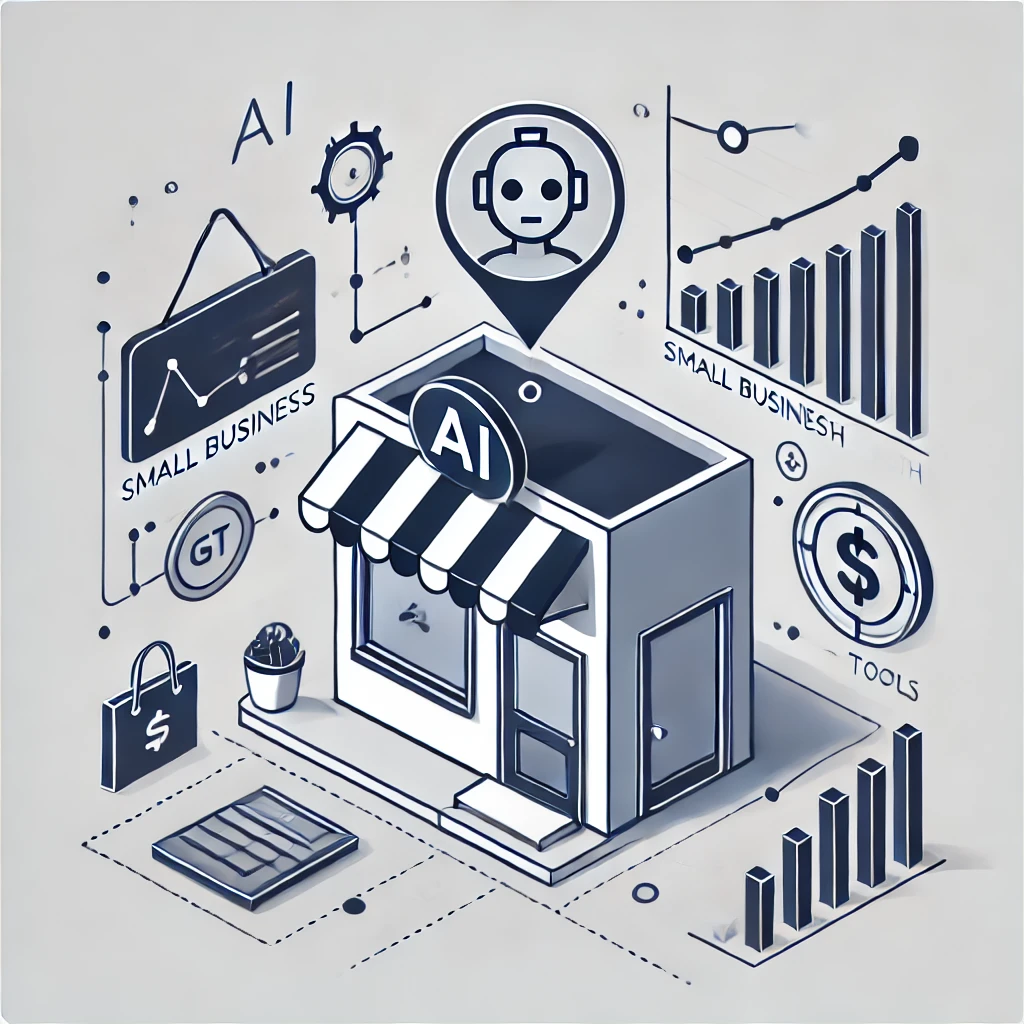In today’s fast-paced business environment, small businesses often face the challenge of competing with larger enterprises while working with limited resources. Artificial intelligence (AI), once a tool reserved for big corporations, is now more accessible than ever, thanks to innovations like GPT (Generative Pre-trained Transformer). This technology empowers small businesses to streamline operations, enhance marketing strategies, and improve customer experiences—all without requiring a large budget. In this article, we’ll explore how small businesses can effectively use GPT for growth and efficiency.
Why Small Businesses Should Consider AI
AI tools like GPT offer several advantages for small businesses:
– Cost-Effectiveness: GPT can automate repetitive tasks, saving time and reducing labor costs.
– Scalability: As your business grows, GPT can handle increased workloads without requiring significant infrastructure investments.
– Accessibility: GPT platforms are user-friendly and require no advanced technical knowledge, making them ideal for small teams.
– Customization: With fine-tuning, GPT can be adapted to meet the specific needs of your business.
Applications of GPT in Small Businesses
Small businesses can leverage GPT in several key areas to drive growth and efficiency:
1. Content Creation for Marketing
Creating high-quality content is critical for marketing success, but it can be time-consuming. GPT can generate blog posts, social media captions, email campaigns, and more. For example:
– Generate engaging social media posts with prompts like: “Write a tweet promoting a 20% discount on our new product line.”
– Create blog content by asking GPT: “Write a 500-word article about the benefits of using sustainable materials in small business operations.”
– Craft personalized email campaigns tailored to specific customer segments, saving time while increasing engagement.
2. Automating Customer Support
Customer service is essential for retaining clients, but it can strain resources. GPT can serve as the backbone of an efficient support system by:
– Powering chatbots to handle common customer inquiries, such as order tracking or FAQs.
– Generating templates for email responses to frequently asked questions.
– Summarizing customer feedback from reviews or surveys to identify areas for improvement.
3. Streamlining Administrative Tasks
Administrative work can eat up valuable time for small business owners. GPT can automate and optimize these processes, including:
– Drafting professional emails or proposals.
– Organizing meeting notes or summarizing long documents.
– Managing inventory records with prompts like: “Summarize inventory levels for products A, B, and C.”
4. Market Research and Competitive Analysis
Understanding your market and competitors is crucial for staying ahead. GPT can assist by:
– Analyzing industry trends and summarizing reports.
– Identifying target customer demographics based on data input.
– Conducting keyword research for SEO campaigns to attract more traffic to your website.
5. Enhancing Customer Experience
Personalized customer experiences are key to building loyalty. GPT can help by:
– Generating personalized product recommendations based on customer preferences.
– Writing tailored thank-you notes or follow-up messages after purchases.
– Predicting customer needs by analyzing purchase history and engagement patterns.
6. Training and Team Development
Small teams can benefit from using GPT to create training materials and resources. For example:
– Developing onboarding guides for new employees.
– Generating FAQs or process documentation.
– Creating quizzes or practice tests to reinforce skills.
Overcoming Challenges with GPT
While GPT offers numerous benefits, small businesses should be mindful of potential challenges:
– Accuracy: Always verify GPT-generated content for factual correctness.
– Customization: Take time to train GPT or refine prompts to ensure outputs align with your brand’s voice and goals.
– Privacy: Ensure customer data is handled securely to maintain trust and comply with regulations.
Best Practices for Using GPT
To maximize the benefits of GPT, follow these best practices:
– Start Small: Begin by using GPT for a single task, such as creating social media posts, before expanding its role.
– Experiment with Prompts: Refine your prompts over time to get more accurate and relevant outputs.
– Combine AI with Human Oversight: Use GPT to enhance, not replace, your team’s efforts. Final reviews by a team member ensure quality and consistency.
Conclusion
GPT is a game-changer for small businesses, offering powerful tools to streamline processes, enhance marketing, and improve customer interactions—all on a budget. By integrating GPT into their operations, small businesses can compete more effectively, save time, and focus on strategic growth. With careful implementation and ongoing refinement, GPT can help transform challenges into opportunities, making AI an indispensable ally for small business success.



cool, but t’s also important for business to remain vigilant about accurasy and privileges using AI tools
Bruh, all business want is a wallet, not some accuracy lol 😏
GPT for small biz! 🤩💰 Efficiency & growth! Content, support, marketing—amazing! Just be careful! 😉
Hope this actually helps em
gpt a game changer! more customers, less work! 😎
ai for small biz?seems like hype tho 👎
hmm… who owns ai?🤔 big corps won’t dig small biz
lol gptsmallbiz tools are neat!👍